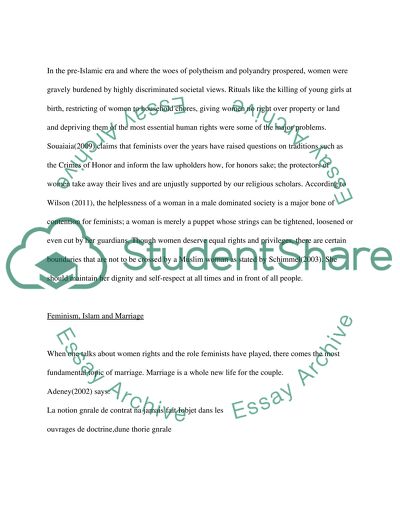Cite this document
(“Feminism and Islam Essay Example | Topics and Well Written Essays - 2000 words”, n.d.)
Retrieved from https://studentshare.org/religion-and-theology/1425023-gender-issue-in-islamic-society
Retrieved from https://studentshare.org/religion-and-theology/1425023-gender-issue-in-islamic-society
(Feminism and Islam Essay Example | Topics and Well Written Essays - 2000 Words)
https://studentshare.org/religion-and-theology/1425023-gender-issue-in-islamic-society.
https://studentshare.org/religion-and-theology/1425023-gender-issue-in-islamic-society.
“Feminism and Islam Essay Example | Topics and Well Written Essays - 2000 Words”, n.d. https://studentshare.org/religion-and-theology/1425023-gender-issue-in-islamic-society.


